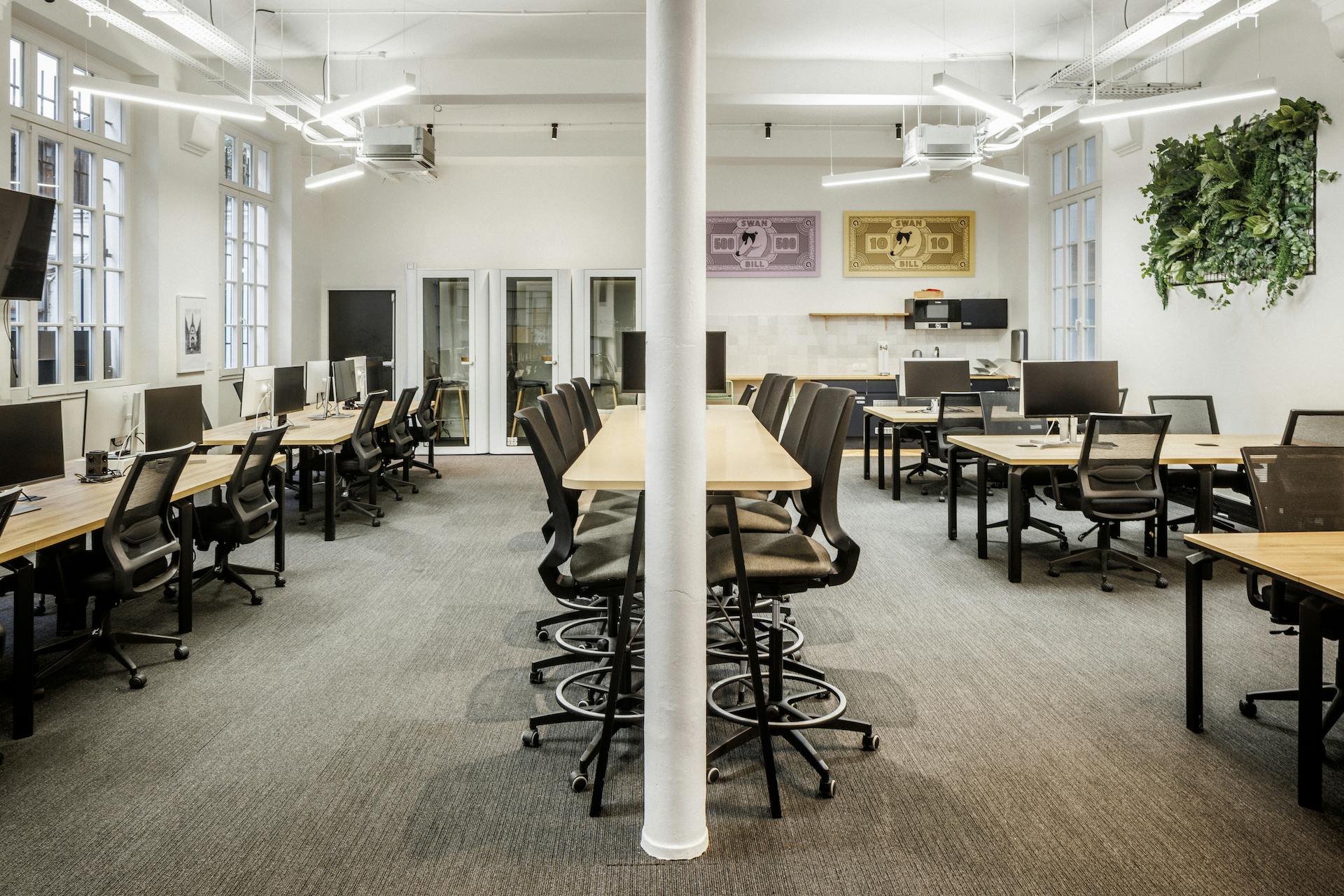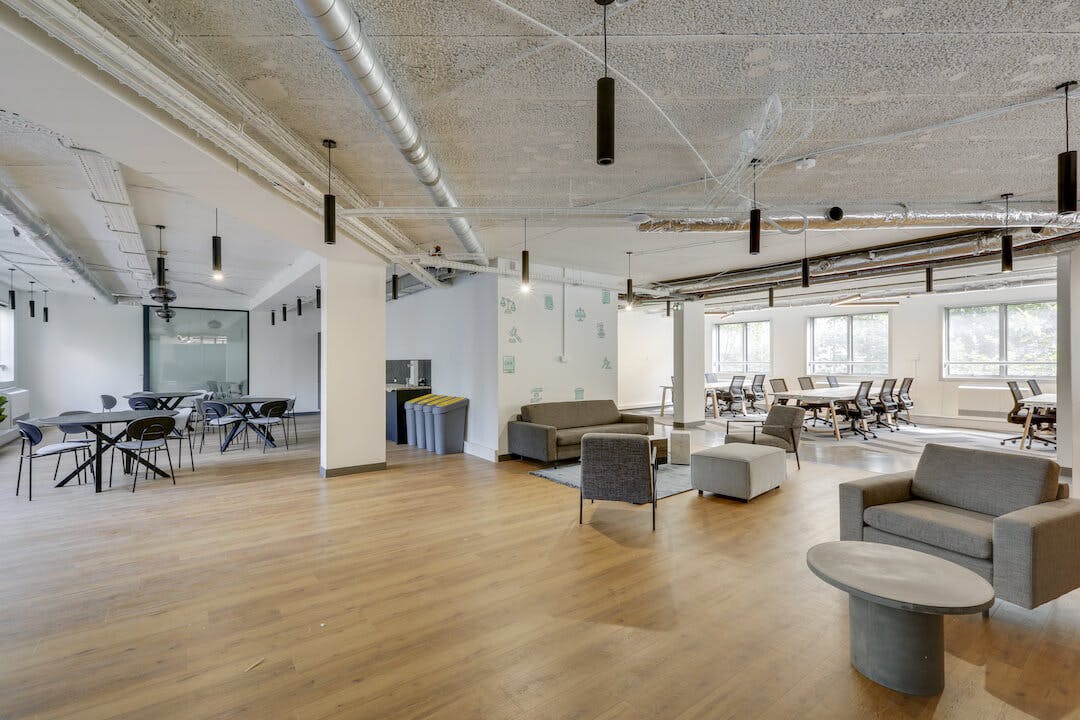

Managers (also) believe in teleworking, and expect an office revolution!
Key findings :
- 85% of managers see telework as a real trend that will increase in the future
- 73% of French people would like to telework up to two days a week even after the covid-19 episode. Two-thirds (64%) of managers and decision-makers are ready to give this freedom to sufficiently autonomous employees.
- 35% of managers feel that their premises are no longer suitable for their needs
- 60% of managers are considering going 'deskless' to optimise their space
- According to 85% of employees and managers, teleworking has no negative impact on productivity
Does telework have a future?
Whether they are employees, managers or executives, they all think the same about telework: for 81% of the French, it is a real trend that will intensify in the future. This view is even more pronounced among managers (89%) and executives (81%) than among employees (74%).
Teleworking means productivity
Far from procrastinating, the vast majority of employees (85%) do not see a negative impact on their productivity when teleworking, on the contrary. 12% even consider themselves much more productive at home, 42% more productive overall and 31% see no difference.
The same can be said of managers and executives. Forced teleworking during the lockdown has obviously opened the eyes of many decision makers to the benefits of teleworking. Only 12% of them consider their teams to be less productive when working remotely.
Managers and employees on the same page
After more than two months of forced teleworking, the question of the future of teleworking is on everyone's lips. Will this full-scale experiment trigger profound changes in the organisation of French working life? If this survey is to be believed, there is a good chance that it will. Once the health crisis is over, 73% of French employees would like to telework up to 2 days a week. In detail, one day a week would already be enough for 25% of the respondents, while 48% of them would opt for two days a week.
Title of the questions : Once the covid-19 episode is behind us...
[Employees] ... how many days per week would you like to telework?
[Leaders & Managers] ... how many days per week would you be prepared to give to sufficiently autonomous people in your teams?
Such a boom in teleworking in the future would have immediate consequences for office occupancy. If we strictly follow the demand expressed by the employees in this survey, 35% of the workstations would be empty during a whole week... The generalisation of part-time teleworking can allow to optimise (or even reduce) its surface, but under certain conditions. Indeed, if all teleworkers are absent from the office on Mondays and Fridays, the company will continue to pay for premises that are half empty 40% of the time. To avoid this, the transition to a hybrid organisation between face-to-face work and telework must be prepared and supervised, notably by organising a coherent rotation within the teams.
The idea of granting two days of telework per week does not seem insurmountable to decision-makers either... provided that employees are sufficiently autonomous to manage their tasks. In this respect, French managers seem to have a certain confidence in their teams: 89% think that the majority of their staff are autonomous enough to telework regularly. Almost one in three French managers (30%) even consider that all of their subordinates are sufficiently autonomous to organise their schedules as they wish.
Don't touch my desk?
In May 2020, a Deskeo survey showed that 79% of French people were ready to sacrifice their regular workstation in order to do more teleworking. In the minds of managers too, this practice, often called "desk sharing", is beginning to make headway! Indeed, 60% of them are interested in organising their workspaces in a "deskless" mode: (31%) are seriously thinking about it and 29% are considering it.
Generally speaking, the impact on the total cost of office space is not that great. The square metres saved can be used to opt for a more central location in order to reduce the amount of time employees spend travelling, or to invest in more professional, more comfortable equipment... For Frank Zorn, co-founder of Deskeo: "Between days off, time off work, business trips, meetings away from home, sick leave and now teleworking, there are many reasons for a workstation to be empty. Desk sharing allows you to rationalise the m2, but beware of over-optimisation!"
In fact, in my experience, the reduction in surface area is rarely so great when an organisation without fixed offices is adopted. Firstly, because the number of workstations must be slightly higher than the identified needs in order to leave yourself some room for adjustment. Secondly, because additional space is needed for such an organisation to work: meeting rooms, collaborative spaces, quiet areas, etc. "The decision to move to a flex-office should therefore not be motivated exclusively by financial imperatives. It is above all a way of offering spaces that are better adapted to the needs of employees" concludes Frank Zorn.
Offices struggling
A few weeks after the end of the containment, the impact of the health crisis on companies' office needs is already being felt. More than a third (35%) of managers say that their offices are now unsuitable for their needs. In detail, 11% of respondents find their offices too small and 24% too large. The crisis has brought opportunities for some who find themselves in a tight space and threats for others who will have to downsize. When you add to this the democratisation of teleworking, more and more companies will have to change their offices to adapt to their new needs. However, it is important to know what surface area is really necessary for the development of one's business. This is why Deskeo, the flexible office specialist, is currently helping dozens of companies to think about the future of their offices, from the fast-growing start-up to the large group listed on the CAC40.
On top of remote management?
Another finding is that 40% of decision-makers are open to the idea of participating in a training course dedicated to remote management. In this respect, we note that executives are more likely to admit to needing help in this area (44%) than managers (36%).
Barrier gestures in the office are well applied
Overall, the French seem to have respected the barrier gestures at work since 64% of them have not had any problems with colleagues who disregarded the health instructions. However, in detail, employees are less categorical, with 41% having encountered difficulties, while only 28% of managers have done so.
Even when problems were encountered, few sanctions were applied to employees who did not respect the barrier procedures. This is what more than 76% of French people say.


Contact Us
We find your Perfect fit!
